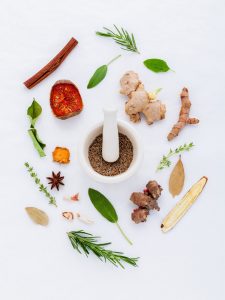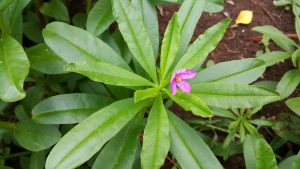 Adaptogens are a class of herbs and other natural substances that are believed to help the body adapt to stress and promote overall well-being. They are thought to work by helping to regulate the body's stress response and by supporting the immune system.
Adaptogens are a class of herbs and other natural substances that are believed to help the body adapt to stress and promote overall well-being. They are thought to work by helping to regulate the body's stress response and by supporting the immune system.
Adaptogens are often used in traditional medicine systems, such as Ayurveda and Traditional Chinese Medicine, and are believed to help the body adapt to a variety of stressors, including physical, emotional, and environmental stress. Some common adaptogens include ashwagandha, ginseng, and rhodiola.
There is some scientific evidence to support the use of adaptogens, although more research is needed to fully understand how they work and their potential benefits. Some studies have suggested that adaptogens may help to improve mental and physical performance, reduce fatigue, and support the immune system. However, it is important to note that the use of adaptogens should be individualized, as the optimal dosage and duration of use may vary depending on the specific adaptogen and the person using it.
 It is always important to speak with a healthcare provider before using any herbal supplement, including adaptogens, as they can interact with medications and may not be appropriate for everyone.
It is always important to speak with a healthcare provider before using any herbal supplement, including adaptogens, as they can interact with medications and may not be appropriate for everyone.
There are many different adaptogens, each with its own unique characteristics and potential health benefits. Here are a few examples:
- Ashwagandha: This herb is native to India and has a long history of use in Ayurvedic medicine. It is believed to help the body adapt to stress and improve overall well-being. Some studies have suggested that ashwagandha may help to reduce anxiety and improve cognitive function, although more research is needed.
 Ginseng: This herb is native to Asia and has been used for centuries in traditional medicine systems. There are several different types of ginseng, including Asian ginseng, American ginseng, and Siberian ginseng. Ginseng is believed to help the body adapt to stress and improve physical and mental performance. Some studies have suggested that ginseng may help to improve immune function and reduce fatigue, although more research is needed.
Ginseng: This herb is native to Asia and has been used for centuries in traditional medicine systems. There are several different types of ginseng, including Asian ginseng, American ginseng, and Siberian ginseng. Ginseng is believed to help the body adapt to stress and improve physical and mental performance. Some studies have suggested that ginseng may help to improve immune function and reduce fatigue, although more research is needed.- Rhodiola: This herb is native to the Arctic regions of Europe and Asia and has been used for centuries in traditional medicine systems. It is believed to help the body adapt to stress and improve mental and physical performance. Some studies have suggested that rhodiola may help to reduce fatigue and improve mood, although more research is needed.
- Holy basil: This herb is native to India and has a long history of use in Ayurvedic medicine. It is believed to help the body adapt to stress and improve overall well-being. Some studies have suggested that holy basil may help to reduce anxiety and improve cognitive function, although more research is needed.
- Licorice root: This herb is native to Europe and Asia and has been used for centuries in traditional medicine systems. It is believed to help the body adapt to stress and improve overall
 well-being. Some studies have suggested that licorice root may help to reduce fatigue and improve mood, although more research is needed.
well-being. Some studies have suggested that licorice root may help to reduce fatigue and improve mood, although more research is needed.
It is important to note that the use of adaptogens should be individualized, as the optimal dosage and duration of use may vary depending on the specific adaptogen and the person using it. It is always important to speak with a healthcare provider before using any herbal supplement, including adaptogens, as they can interact with medications and may not be appropriate for everyone.
Contact Us Today For A Free Consultation

- Tamoxifen Citrate Guide [Last Updated On: January 12th, 2024] [Originally Added On: February 20th, 2020]
- Tadalafil (Cialis) Guide [Last Updated On: July 21st, 2024] [Originally Added On: May 12th, 2020]
- Vardenafil (Levitra) Guide [Last Updated On: June 23rd, 2024] [Originally Added On: May 17th, 2020]
- Tamoxifen Citrate [Last Updated On: February 26th, 2024] [Originally Added On: May 19th, 2020]
- Testosterone Cypionate Guide for Treatment of Low T Symptoms [Last Updated On: February 3rd, 2024] [Originally Added On: August 11th, 2020]
- Escitalopram (Lexapro / Cipralex) Guide [Last Updated On: July 22nd, 2024] [Originally Added On: April 8th, 2021]
- Escitalopram (Lexapro / Cipralex) Guide [Last Updated On: November 24th, 2024] [Originally Added On: April 11th, 2021]
- Male Birth Control Gel on the Road to FDA Approval [Last Updated On: July 30th, 2024] [Originally Added On: January 24th, 2022]
Word Count: 574




















